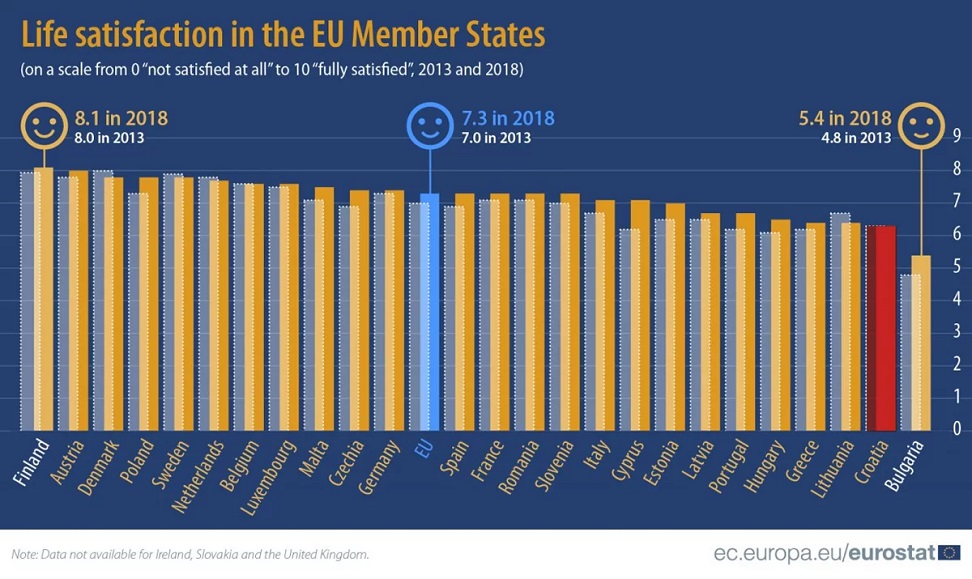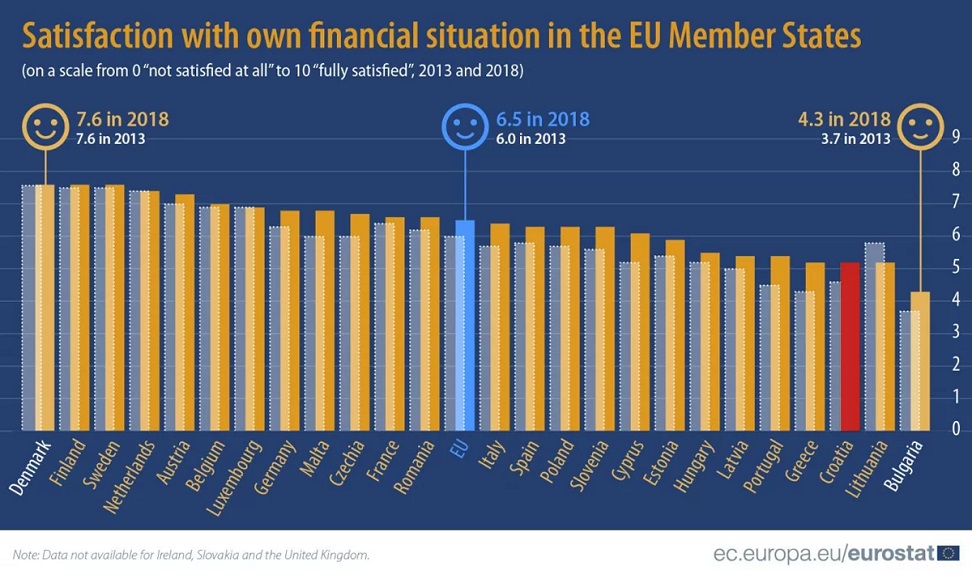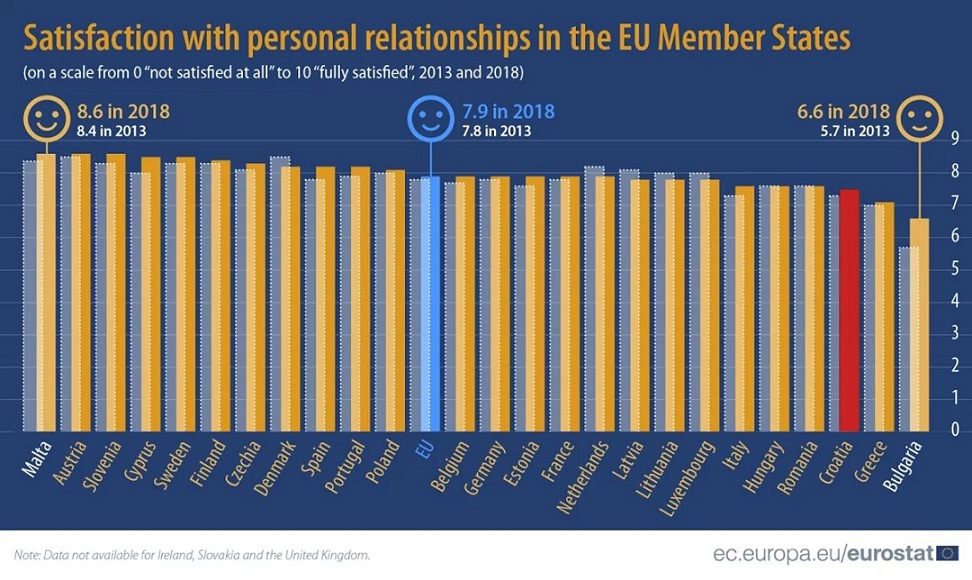Croatia Life Satisfaction: Second from Bottom of EU
“It’s a nice place to visit, but I wouldn’t want to live there,” so the saying goes, and that appears to apply to life for some in present-day Croatia. Recent research shows that Croats are extremely unhappy people.
As Gordan Duhaček/Index reveals on November 29, 2019; EUROSTAT has published data on life satisfaction in the European Union, and Croatia is again at the bottom of the chart. On the other hand, the citizens of Finland are most satisfied with their lives.
“Generally speaking; how satisfied are you with your life right now?" That is the question Eurostat asked thousands of Europeans in 2018, offering them the opportunity to answer on a scale from 0 ("not at all satisfied") to 10 ("completely satisfied"). The EU average in terms of satisfaction with one's life for 2018 is 7.3, which is a 0.3-point increase over 2013, when the survey began.

EU Life Satisfaction Increase
In five years, satisfaction with one's own financial situation has increased (in 2013 the average was 6, and in 2018 it was 6.5), as well as satisfaction with personal relationships (in 2013 the average was 7.8 and now 7.9).
But a more complex picture emerges by reviewing results across European Union countries. Finns rated their life satisfaction an impressive 8.1, while Bulgarians, who are least satisfied with their lives, gave their life satisfaction a 5.4 rating. Croats are second from the bottom of the rankings, with a reported life satisfaction rating of 6.3, which is below the EU average.
Lithuania, Greece, Hungary, Portugal, Latvia, Estonia, Cyprus, Italy, Slovenia, Romania, France and Spain all reported below-average ratings, while the Finns, Austrians, Danes, Poles, Swedes and Dutch are most satisfied with their lives.
From 2013 to 2018, life satisfaction increased among citizens of all 19 EU Member States, with Cyprus, Bulgaria and the Czech Republic enjoying the largest leap. And although Bulgarians are the least satisfied with their lives of all EU member states, they have grown more satisfied in the past five years. However, the same cannot be said for Croats.

Croatia Not Satisfied
Specifically, Croats were equally (un) satisfied with their lives in 2013 and 2018, and only Belgians expressed the same level of satisfaction, but their satisfaction level is significantly above that of Croatia. Interestingly, in 2018, only four EU Member States performed worse, namely Lithuania (-0.3), Denmark (-0.2), the Netherlands (-0.1) and Sweden (-0.1). However, it shouldn’t be assumed that Lithuanians and the Dutch are equally dissatisfied, given that Lithuania is at the bottom of the ladder and the Netherlands is at the top. In other words, the decline in life satisfaction in the Netherlands by 0.2 percent is almost negligible, while the overall poor positioning of Lithuania is a much bigger challenge for its citizens.
Croats are also among the least satisfied with their financial situation (only Bulgarians and Lithuanians submitted worse ratings) and are well below the EU average, which garnered a 6.5 rating on a scale from 1 to 10 in 2018. Croats, however, rated their financial satisfaction at 5.1.
Citizens of Denmark, Finland and Sweden are most satisfied with their financial situation, with the largest increases in financial satisfaction from 2013 to 2018 were reported in Greece, Cyprus, Portugal, the Czech Republic, Italy and Slovenia.

Croatian Relationships Lacking
The results in the category of personal relationships are particularly interesting. Malta is most satisfied (8.6 rating), followed by Austria, Slovenia, Cyprus and Sweden. This suggests that satisfaction with financial situation is not crucial to fostering good interpersonal relationships.
The Croats are at the bottom again, unfortunately. Only Bulgarians (6.6) and Greeks (7.1) are more dissatisfied with their personal relationships, while Croats with a score of 7.5, are now third in the EU. It is worth noting that this rating is only slightly higher than 2013, which suggests that Croats should be working on their interpersonal relationships.
In any case, Eurostat has demonstrated what some of us experience every day: Croats are a deeply dissatisfied nation, both in their lives and in their relationships with other people.
A detailed article is available on the Eurostat website here. For more information on life in Croatia, follow our Lifestyle page here.

